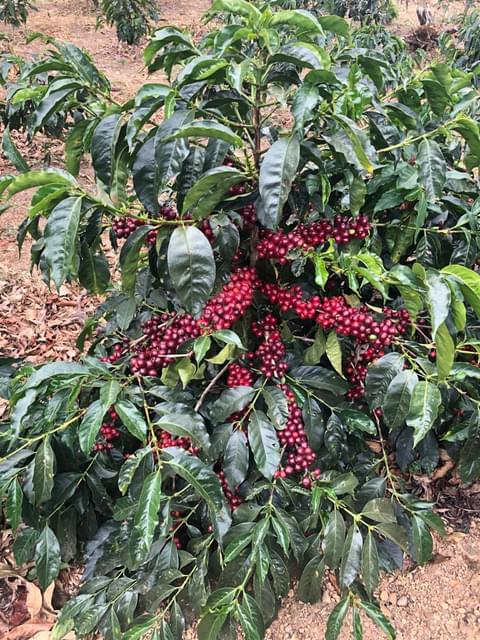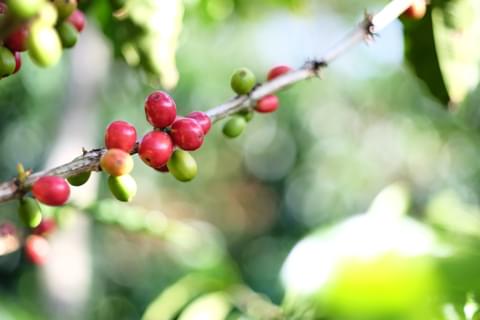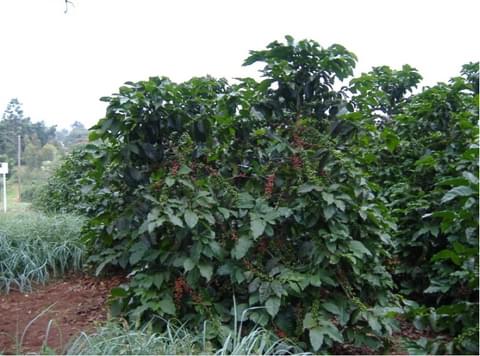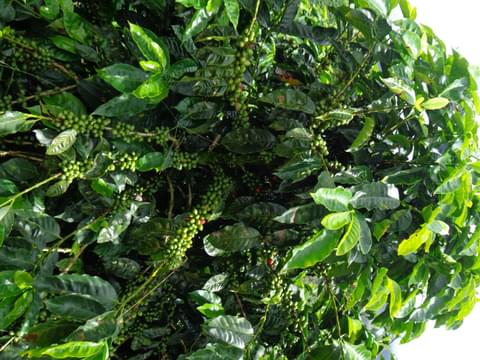
Centroamericano
H1
Very high yielding with very good quality potential if planted in healthy soil and at elevations >1300 meters, with resistance to rust. Well-adapted for agroforestry.
Stature
What is the growth habit of the plant (e.g., is the plant tall or compact)?
Dwarf, Tall, Unknown, Not applicable
Leaf tip color
What color are the tips of new leaves?
Green, Bronze, Green or Bronze, Light Bronze, Dark Bronze, Unknown, Not applicable
Bean Size
How big are the coffee beans? For Arabica reference, Caturra = Average, SL28 = Large, and Maragogipe = Very Large.
Below Average, Average, Large, Very Large, Unknown, Not applicable
Yield Potential
How much fruit will the coffee tree produce? For reference, Caturra, Bourbon, and K7 = Medium, and SL28 = Low
Low, Medium, High, Very High, Unknown, Not applicable
Quality potential at high altitude
What is the potential for quality of this variety when grown at higher altitudes?
Very Low, Low, Good, Very Good, Exceptional, Unknown, Not applicable
Optimal Altitude
What is the altitude at which quality and agronomic performance potential is maximized? This especially takes into account the variety’s expected cup quality and tolerance to coffee leaf rust and coffee berry disease. Optimal altitude depends on a farm’s latitude — farms located close to the equator will have higher optimal altitudes than those farther north or south of the equator.
First, locate your correct latitude, then find the corresponding optimal altitude.
Latitude 5°N to 5°S
Low: 1000 – 1200m
Low-medium: 1000 – 1600m
Medium: 1200 – 1600m
Medium-high: >1200m
High: >1600m
Low-Medium-High: >1000m
Latitude 5 – 15°N or 5 – 15°S
Low: 700 – 900m
Low-medium: 700 – 1300m
Medium: 900 – 1300m
Medium-high: >900m
High: >1300m
Low-Medium-High: >700m
Latitude >15°S or >15°N
Low: 400 – 700m
Low-medium: 400 – 1000m
Medium: 700 – 1000m
Medium-high: >700m
High: >1000m
Low-Medium-High: >400m
Coffee leaf rust
Is the plant susceptible to leaf rust?
Coffee rust is a foliar disease of coffee caused by the fungus Hemileia vastatrix that causes defoliation and may result in severe crop losses. Plant diseases are constantly evolving. Note: A variety that is resistant to a disease today may not be resistant tomorrow.
Highly resistant, Intermediate resistance, Low resistance/Susceptible, Unknown, Not applicable
Nematode
Is the plant susceptible to nematodes (specifically the species Meloidogyne spp. and/or Pratylenchus spp.)? Nematodes are microscopic animals which infect the plant roots and can cause wilting and death of the plant.
Resistant, Tolerant, Susceptible, Unknown, Not applicable
Coffee Berry Disease
Is the plant susceptible to CBD?
CBD is a coffee disease that affects the fruit. It is caused by the fungus, Colletotrichum kahawe. Currently, CBD is not present in Central America, but it is a concern that the disease will spread. Note: Plant diseases are constantly evolving. A variety that is resistant to a disease today may not be resistant tomorrow.
Resistant, Tolerant, Susceptible, Unknown, Not applicable
Agronomics
Year of first production
When will the tree produce its first fruit?
Year 2, Year 3, Year 4, Unknown, Not applicable
Nutrition requirement
What level of nutrition (e.g., compost, fertilizer) does this plant require?
Very High, High, Medium, Low, Unknown, Not applicable
Ripening of fruit
At what time in the harvest season will the tree fruit ripen?
For Arabica reference, Caturra = Average. No Robusta reference.
Early, Average, Late, Very late, Unknown, Not applicable
Cherry to green bean outturn
What is the size of the bean in relation to the fruit? For Arabica reference, Caturra = Average, SL28 = High.
Low, Average, High, Very High, Unknown, Not applicable
Planting density
What spacing should you use for planting this variety? Note: In Central America, trees are typically pruned to have one main stem. In Africa, it is typical to prune trees for multiple (2−3) stems per tree. So, while tree planting densities typically are much lower in Africa, each tree is fruiting relatively more because there are multiple main stems.
1000 – 2000 per ha (using multiple-stem pruning)
2000 – 3000 per ha (using multiple-stem pruning)
3000 – 4000 per ha (using single-stem pruning)
5000 – 6000 per ha (using single-stem pruning)
4000 – 5000 per ha (using single-stem pruning)
Unknown
Not applicable
Additional agronomic information
Background
Genetic Description
To which genetic group of Arabica does this variety belong?
Bourbon-Typica group (Typica related)
Bourbon-Typica group (Bourbon related)
Bourbon-Typica group (Typica and Bourbon related)
Ethiopian landrace
Introgressed (Catimor related)
Introgressed (Sarchimor related)
Introgressed (Other)
F1 hybrid (introgressed)
F1 hybrid (not introgressed)
Unknown
Lineage
What are the parents of this variety (when known) or what is its genetic lineage?
Breeder
If the variety was created by a breeder, what is the name of the breeder?
History
Additional Images

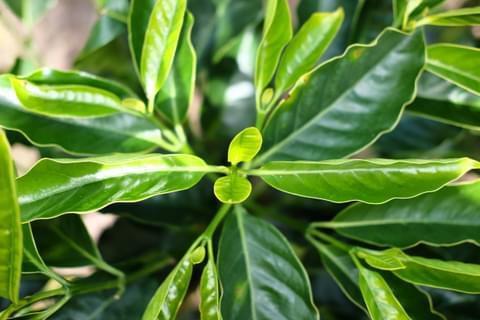
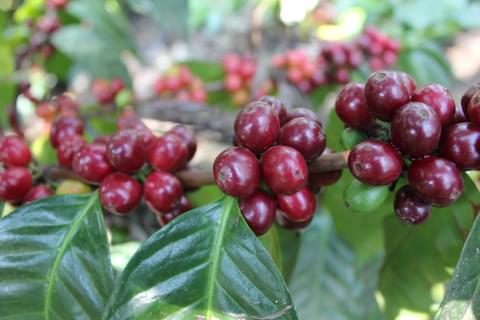
World Coffee Research
World Coffee Research is a 501 (c)(5) non-profit, collaborative research and development program of the global coffee industry to grow, protect, and enhance supplies of quality coffee while improving the livelihoods of the families who produce it.
Are you a coffee farmer?
We've created a printable version of our coffee variety catalog specifically for farmers. Available in English and Spanish.
